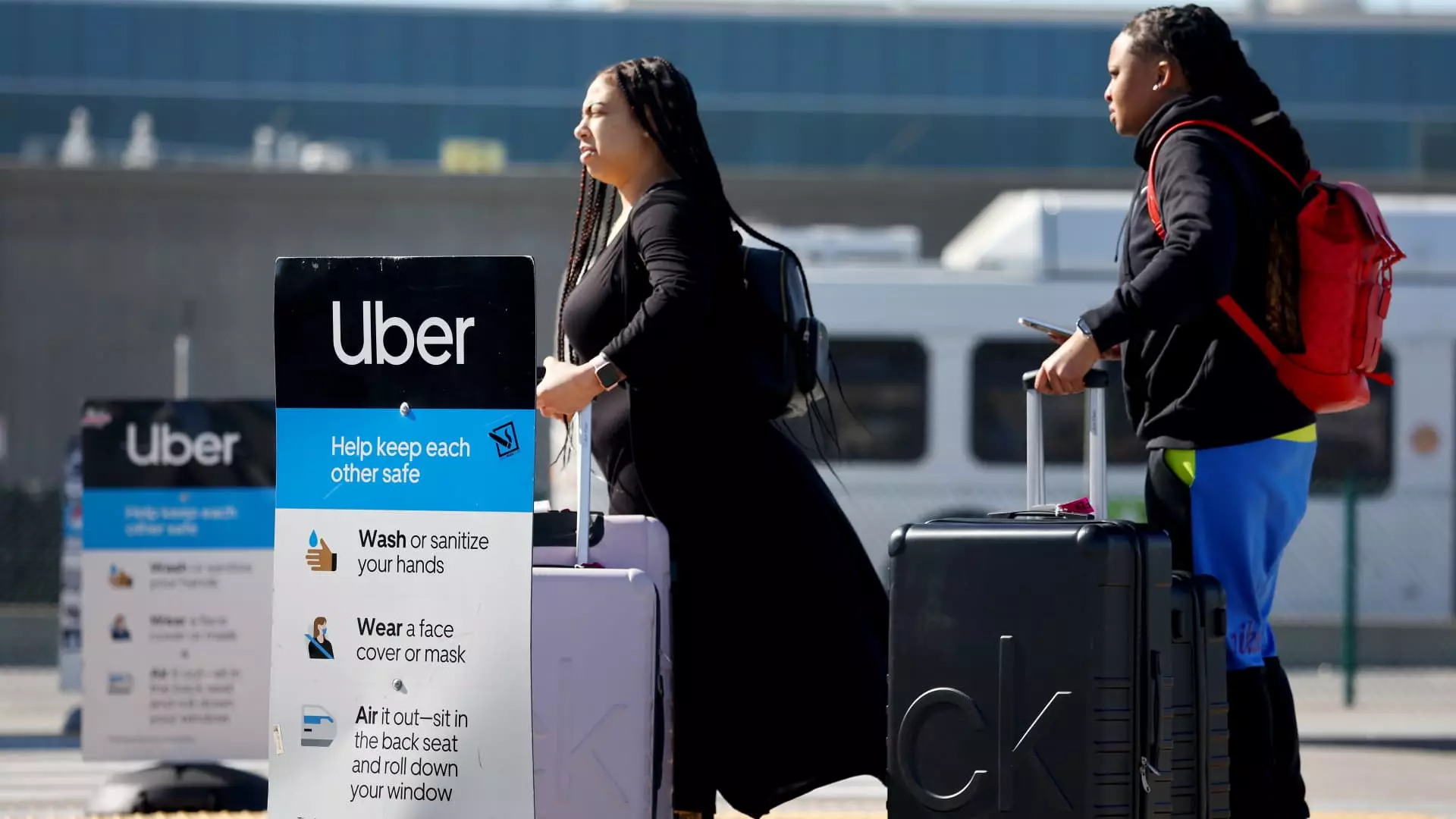Delta Air Lines has made a significant strategic move by announcing a new partnership with Uber, effectively ending its previous eight-year alliance with Lyft. This change, which will take place this spring, marks a critical evolution in Delta’s approach to its SkyMiles loyalty program. By linking accounts with Uber, Delta SkyMiles members can now earn miles through various Uber services, enhancing the synergy between air travel and ride-hailing services. This partnership is not merely a shift in ride-hailing preferences but a calculated endeavor to streamline travel experiences for customers and increase brand loyalty.
Details of the Delta and Uber Partnership
The specifics of the partnership between Delta and Uber are compelling. SkyMiles members will accumulate miles based on their spending with Uber, with a tiered earning structure: one mile per dollar for UberX airport rides, two for premium rides such as Uber Comfort and Uber Black, and an impressive three miles per dollar on Uber Reserve trips. Additionally, members using Uber Eats for meals exceeding $40 can earn one mile per dollar spent, essentially merging food deliveries with travel rewards.
This initiative aligns with the surge in air travel, as noted by Uber’s CEO Dara Khosrowshahi, who emphasized that improving the airport journey for passengers is vital. With the aviation industry buzzing again post-pandemic, the collaborative efforts of Delta and Uber could facilitate more seamless transitions between transportation methods, enticing travelers with the allure of earning frequent flyer miles not just in the air, but also on the ground.
Despite the positives of the new partnership, the end of the collaboration with Lyft raises questions. Delta has opted not to comment publicly on the reasons behind this shift proactively, though there are indicators that the decision may also hinge on competitive capabilities and loyalty program dynamics. Lyft had previously positioned itself as a valuable partner, and many customers who linked their Lyft accounts to Delta are now faced with a transition period, with the current earning mechanism for miles through Lyft remaining effective only until April 7.
In light of this, customers may experience a mix of nostalgia for the previous partnership while becoming eager participants in the new program. It underscores the competitive landscape between ride-hailing companies and the synergy they seek with corporate giants like Delta.
The evolving landscape of loyalty programs within the airline industry reflects a broader trend of interconnected services designed to foster consumer loyalty. Delta’s decision to partner with Uber signals changing consumer preferences toward unified travel experiences. Delta already has collaborations with brands like Starbucks and Hertz, aiming not just to enhance customer experience but to capitalize on consistent, cross-industry loyalty.
As airlines navigate through the post-pandemic phase, such partnerships can prove invaluable. The integration of food delivery services like Uber Eats into the travel ecosystem is indicative of the growing desire for convenience among consumers. This holistic view of travel encourages customers to engage with brands in more versatile ways, which has substantial implications for market behavior.
A Financial Perspective: The Power of Partnerships
Delta’s alliance with Uber also has broader financial implications. The airline’s relationship with American Express highlights an intricate web of partnerships influencing financial outcomes. Delta is projected to realize approximately $7 billion in revenue from its partnership with AmEx in 2024. This figure presents a measurable impact of such collaborations on the bottom line, demonstrating the lucrative nature of loyalty programs.
Furthermore, both Delta and Uber have witnessed substantial growth in their respective customer bases—an encouraging sign for both businesses as they forge ahead with this partnership. The market competition is fierce, and it will be interesting to monitor how these companies evolve their offerings to attract and retain customers who are ever more discerning about their loyalty choices.
Delta’s shift from Lyft to Uber represents much more than a simple change in ride-hailing partners; it signifies a strategic maneuver to enhance customer loyalty through improved travel experiences. By integrating an extensive rewards program that rewards members for their spending, Delta is leveraging modern consumer behaviors to create a seamless travel ecosystem. As the landscape of travel continues to transform, such partnerships will certainly play a pivotal role in shaping the future of air travel and consumer expectations. The eyes of the industry will be watching closely to see how this collaboration develops and what it means for the broader travel community.

